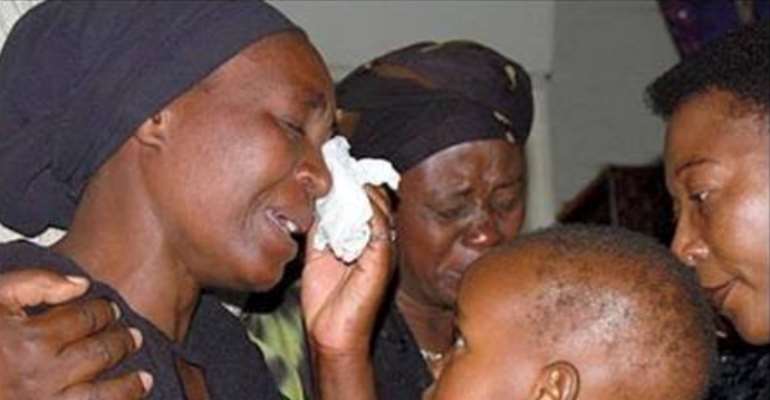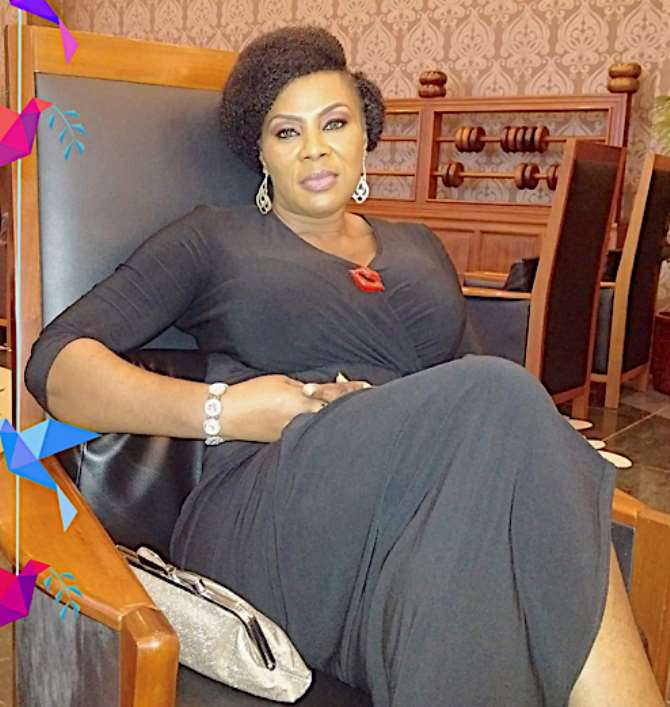International Widow’s Day: Is Nigeria, Church And Society Doing Enough For Widows?

There is no denying the fact that widows, particularly in this part of the world, are treated as outcasts. They are not even given access to credit or other economic resources. To make their lives more difficult, some societies follow irrational practices like making widows drink the water their husband’s corpse was washed in. In several cases, they become more vulnerable to physical and mental violence. As a consequence, they end up facing issues like poor nutrition and lack of adequate shelter. Even their biological children in most cases unexpectedly abandon them to their plight while their in-laws treat them in such a way that they cannot even drink water and drop cups.
It is not an exaggeration to say that there is an urgent need for those in government, the church and the society to intensify efforts toward helping the widows as widowhood is not a self-imposed for anyone to erroneously think that women that have found themselves in the pitiable situation because of the sins they committed, and thus should not be assisted. It is high time we realized that the death of a husband is a tragedy that befalls a woman as it involves a physical break in their relationship, and it is seen as the most stressful and devastating thing in life.
In fact, the government needs to step up action on how widow’s should be empowered, in ensuring that they are less vulnerable to sufferings, and also to ensure that they are not denied their right by gold diggers within any given extended family settings who are wont to latch on reprehensible laws that are embedded in our culture and tradition.
The government should take it upon itself to find ways of countering some provisions in our customary laws that work against widows as it is wrong for such laws to continue to exist, particularly as they have outlived their relevance. In fact, the biggest challenge widows have in Nigeria is denial of inheritance rights when they have lost their husband. You find husband’s relatives trying to take things away from them.
There is need to be cognizant of the fact that women became widows because of circumstances beyond their control. They should not be crucified because of that. There is need for everyone; whether in government, in church and within family settings to come together to help the widows.
In every society, there are women of all ages whose husbands have gone to the great beyond, most especially the vulnerable ones. The underprivileged widows and their vulnerable children constitute a significant component of every country’s population.
According to the United Nations, in a relatively recent data, there are an estimated 258 million widows around the world, and nearly one in ten lives under deprivations and in extreme poverty.
At this juncture, it is expedient to say that in line with the spirit of the celebration of the International Widow’s Day which is taking place on 23 June, 2022 that widows need more support from government and philanthropists to return to productive lives and overcome challenges that come with losing a spouse and breadwinner. The reason for the foregoing cannot be farfetched as majority of them are avoidably suffering.
As to the expectations from the church regarding the collective plight of widows in Nigeria, it is salient to ask, “Does the Bible say anything about how to treat widows”?
Without doubt, the answer to the foregoing question cannot be farfetched as the Bible has much to say about how God views widows and how His people are to treat this vulnerable group. Psalm 146:9 says, "The LORD watches over the sojourners; he upholds the widow and the fatherless." Deuteronomy 10:18 says, "He executes justice for the fatherless and the widow, and loves the sojourner." So God, Himself, is concerned with the plight of widows. In fact, Jesus embodied this concern while He walked this earth. Luke 7:13–15 records, "And when the Lord saw her (a widow), he had compassion on her and said to her, 'Do not weep.' Then he came up and touched the bier ... And the dead man sat up ... and Jesus gave him to his mother." Jesus saw the widow, was moved by her grief to take action, and remedied the situation by returning her son to her so that she would have someone to care for her. This woman had value in God's eyes. Jesus again displayed the value widows hold when He lifted up a widow as an example for His disciples to follow. In Luke 21:2–4 Jesus "saw a poor widow put in two small copper coins. And he said, 'Truly, I tell you, this poor widow has put in more than all of them. For they all contributed out of their abundance, but she out of her poverty put in all she had to live on.'" This widow's generosity toward God and complete trust in Him were to be noticed, admired, and imitated.
God views widows not only as a vulnerable group in need of compassion or as a positive teaching tool, but also as important members of the community capable of ministry. In Luke 2:36–38 Anna's story is briefly recorded. She had been married, but her husband passed away only seven years after their wedding, and she lived her remaining years in the temple worshipping with fasting and prayer night and day. At eighty-four years old, she was known as a prophetess speaking forth the word of God. When baby Jesus was brought to the temple for His dedication, Anna "began to give thanks to God and to speak of him to all who were waiting for the redemption of Jerusalem" (Luke 2:38). This widow served in the temple, recognized Jesus as the awaited Messiah, and shared that message with the community. In the Old Testament, God used a widow to rescue Elijah when his life was in danger saying, "Behold, I have commanded a widow there [in Zarephath] to feed you" (1 Kings 17:9). So God sees these women as valuable people able to be effective in ministry, as positive examples to follow (see also Luke 18:3–5), and as a group worthy of compassion and defense.
In a similar vein, the society needs to do more to assist the widows in our midst as their collective plight is not by circumstances of their making but circumstances that are forced on them. Therefore, it is expedient the society ensure their development and wellbeing, especially now that surviving under the prevailing harsh economy has become that of survival of the fittest.
In fact, the Bible records not only God's view of widows and His expectations for how His people should care for them, but also the standards for how society in general should treat widows. Widows should not be mistreated (Exodus 22:22) or oppressed (Zechariah 7:10). Society is to take up their cause (Isaiah 1:17) and provide justice (Deuteronomy 27:19). And people should give "so that they (widows, fatherless, sojourners) may eat within your towns and be filled" (Deuteronomy 26:12). God obviously cares deeply for these women who have lost their husbands and may now be alone in the world. So He calls us to notice these widows and have compassion on them, protecting them from those who might take advantage, providing for their needs, and allowing them to serve in whatever capacity the Lord may still have for them in which to minister.
As asked through the headline, “Is Nigeria, church and society doing enough for widows?” Unarguably to strip my emotion away from this piece, I engaged few people in a staggered media parley to answer the question, and their responses were no doubt unanimous that enough has not been done for widows, and that the government, church and the society need to do more for them. Therefore, I am urging the government, the church and the society to go beyond celebrating the event just once in a year. Widows should be taken care of at all times. It should not be a yearly ritual.
Sandra Ijeoma Okoye (Author)

